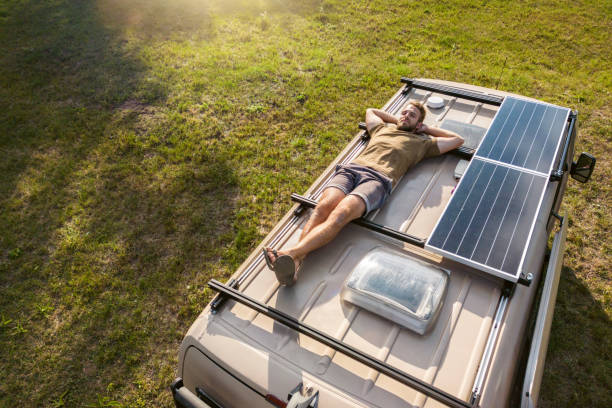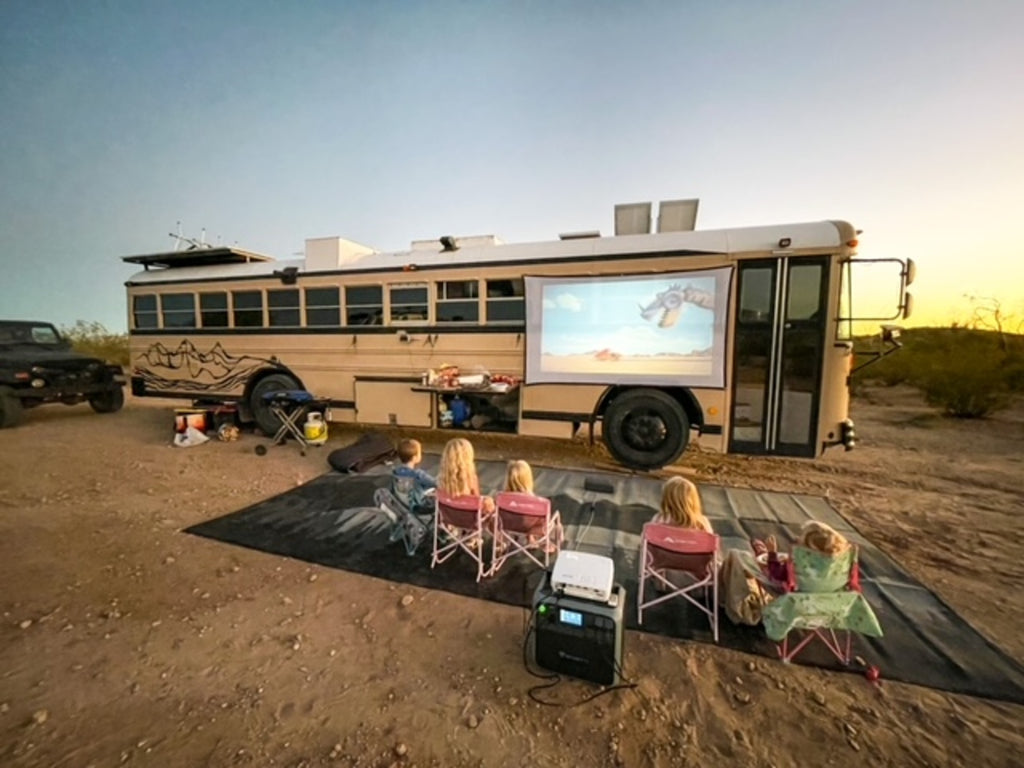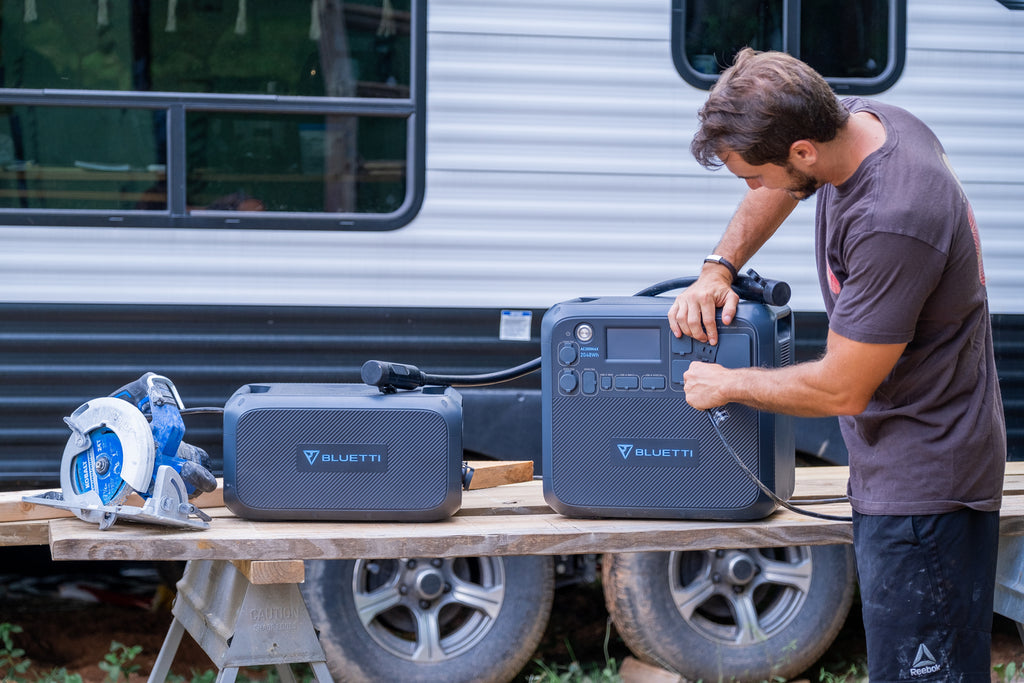When people do their research on RV living they tend to believe it's a lot cheaper than buying or renting a home. RVs usually have a lower initial price in comparison to the majority of homes but the top models can compete with the starting prices of homes in some places.
For many, renting or owning an RV tends to be cheaper than traditional housing. Nevertheless, it should be taken into account that initially even if not that much money has been spent doesn't mean that in the long run it will cost less to live in.
Read on to know more about it.
Cost Of Living In A House
The costs of residing in a house differ based on factors such as location and size. Typically, a homeowner in the US spends roughly $1,200 to $2,500 per month on mortgage payments. Renters pay about $ 1,500 per month. Homeowners can expect to pay anywhere from 0.2- 2% of a home’s value in property tax annually, averaging $2,000-$10,000 for a $200,000 house. Insurance costs approximately $1,200 per annum for homeowners and $180 for tenants. Utilities can vary from $200 to $500 per month which include electricity, water, gas and internet.
Maintenance costs between 1% and 4% of the value of the home annually, so for a $200,000 house, that's $2,000 to $8,000 per year. Repairs are diverse but may add up to $1,000 to $2,000 a year on average. The annual costs of living in a house ranges from $15,000 to $40,000 overall, differing with some factors.
Cost Of Living In RV
The cost of living in an RV varies greatly from person to person. Normally, you would be looking at a range of about $400 per month to $4000 or even more than that. This covers all outlays including the original cost of your RV/campsite charges as well.
Interestingly, one can live in an RV for $400 a month and do it quite easily which can be done if one is careful about the expenses. In fact it is possible to spend less than that even with a frugal approach. For instance, during such months where you stay at one place and use free boondocking sites, the expenses will be nil. You just spend money on groceries, phone bills and the rest. The campground fees and the fuel costs will be zero as you don't travel so much.
In the end, your RV living costs will depend on how you live and spend your money.
Full-time RV travel Or Stationary RV living

When living in an RV full-time, you have two main options: full-time travel and stationary living.
Full-time RV Travel
Beginning with a year round RV lifestyle, you’re always on the road, visiting new places on a regular basis. However, this kind of life opens up unlimited options, but at the same time has to be given careful thought cost-wise. Fuel constitutes the main outlay for full-time RV travellers.
The monthly gas spending for RV owners is within $200 to $400, based on the length of travelling and the fuel efficiency. Nevertheless, those working on the road can truly save a lot on accommodation with the help of boondocking, which implies free camping. Travellers who boondock for up to 14 days a month without charges, save hundreds of dollars on campground fees. Also, RV clubs and memberships can be joined which may offer discounts on camping fees, therefore lessening the amount of money spent. In summary the fuel costs are still a major point to consider but smart saving and considering all details can make full-time RV travel a surprisingly affordable style of life.
Stationary RV Living
Stationary RV living is all about spending a long time in one place which provides you with stability and continuity. Unlike permanent travelling which is mostly characterised by high fuel expenses, stationary living has lower transportation costs. But other expenditures also come into play. Campground RV spot monthly rent lies in the range of $200 to $800 which is determined by the location and the common place amenities. On top of this, utility charges for electricity, water and sewer may typically be about $100 - $300 per month. In contrast, a stable residence entails a consolidating lifestyle; however, you must account for the continuous payments. Generally speaking, although transportation expenses are cheaper, stationary RV living entails economics-wise analysis of campground or rental fees and utilities.
Pros And Cons Of RV Living and Houseownership
Your overall cost of living in an RV is less than that of homeownership. Some of the pros of living in an RV, whether you travel or remain stationary.
Pros
- Cheaper monthly rent and expenditures
- Easily switching to lower cost locations
- No property taxes or expensive property insurance
- No HOA council to bother about
- Perk of Leaving when bored with the surroundings
Cons
- Decline in the value of an RV with time
- Space limited compared to the home
- Lower capacity to host guests
- Battery and waste level monitoring
- Inconvenience of visiting a laundromat
The Homeownership has some Pros and drawbacks as well:
Benefits
- Potential for property value appreciation with time.
- Using home equity as collateral for loans
- Freedom to change and personalise
- More living space for your personal, guests and events usage
- Tax benefits like mortgage interest which is tax deductible
Drawbacks
- higher living costs in total
- Significant upfront expenses
- Current property taxes and levy
- Demand for enhanced maintenance and upkeep
- Long-term investment needed for establishing equity
Money-Saving Tips For RV Living
Budget-Friendly Campsites
Search for budget friendly campsites or try free space camping in open/cheap spaces to reduce the costs of accommodations. Several public lands have cheap or free camping sites for RVers.
Fuel Efficiency
Design your routes economically to conserve fuel. Avoid any superfluous unnecessary detours and maintain a constant speed to increase gas mileage. Think about buying fuel-efficient RV models or tow vehicles to cut on fuel spending in the long run.
Minimalist Lifestyle
Opt for the minimalist ways and shrink your stuff to get rid of the mess and decrease the load in your RV. It also lowers fuel consumption owing to the lesser weight. Choose multipurpose things and essentials only to cut down the costs from unnecessary purchases.
Cooking At Home
Eat home in your RV kitchen rather than dining in restaurants often. By cooking your own meals you will control the amount of food, portion sizes, and ingredients and decrease food costs. Load up on non-perishing items and shop smartly to get more for less.
Maintenance And Repairs
Always take good care of your RV to avoid expensive repairs later. Stay on top of preventive measures like oil changes, tire inspections and appliance checks to prevent unwanted costs. Gain basic DIY repair skills so you can handle minor issues on your own and avoid calling in professionals.
Membership Discounts
Find discounts to RV clubs or loyalty programs on campsite fees, fuel, and other amenities. Use membership benefits and special offers to get the biggest savings while living in your RV.
How To Power RV?
The ability to power your RV energy efficiently is essential for hassle-free travelling without exceeding your budget. BLUETTI solar generators offer an inexpensive method, harvesting the sun’s power to ensure that your devices keep going when you get out on the road. Let's dive into the BLUETTI options for your RV electricity needs so we can check them out.
BLUETTI AC200P

Here is the BLUETTI AC200P, the best-selling big-sized power station boasting gigantic 2000Wh capacity! Now for the timespan, Its LiFePO4 long-lasting battery can afford up to nine-year long camping trips.
The smart BMS feature allow for uninterrupted snapshots of the individual gadgets’ activity; the safety mechanisms are part of this process. Also, it is worth mentioning that apart from USB-A/USB-C cables, it provides a cigarette lighter port, 12V/3A DC port, 12/25RV ports, and a 15W wireless charger helping to get power for power swallowing goals on your camping trips.
The BLUETTI AC200P, which is low-priced and dependable, ensures the magic camping feel for any of your outdooring, while being a super-choice for a nomad style of RV life.
BLUETTI AC200MAX

Introducing BLUETTI AC200MAX, the greatest power station created for your camping adventures! Actually with a battery of a massive size 2084Wh, and high-powered (2200W) inverter, you are able to have your own small power station outside.
However, we have only headed half of the list because the awesomeness is still growing with us. If you purchase extra battery modules, you will gain an additional 8 times the capacity you have now, so you will be able to store a massive 8192 Wh of it. Having this powerful device will not only guarantee that you have enough power for the camping equipment but may run other additional things as well.
Moreover, the AC200MAX has a sixteen outlet section which allows you to harness and use all your devices at once. Also, must not forget that this hardwired adapter impressed most all with a unique 30A NEMA TT-30 outlet and an outrageous 12V 30A DC outlet to power your RV.
Budget–friendly and most importantly versatile, the BLUETTI AC200MAX is the leading RV’s power armour making sure you have all the power you need for the trip.
BLUETTI EP500

The BLUETTI EP500, the ultimate power solution, comes to the rescue when camping parties and unexpected blackouts are involved. The amazing features of this device remains assured as it is made of an incredible 5100Wh battery along with a 2000W inverter offering uninterrupted lighting, charging of laptops, and powering of electric cars.
It is environmentally friendly and works on gas, thus no minute noise is produced. As such, it is the perfect choice for camping, supplying reliable energy without the hustle of the generator once in the camping experience. What’s more, it accumulates rapid charge (1200 watts ) which functions like a tiny infield solar power plant while you are in the wilderness.
Still that single destruction is not the limit of admiration. The EP500 can be joined to a network for updates, thus has continuous performance and to function. It is very easy for your off-road activities and budget-friendly, the all-in-one electric power wizard of your RV.
Final Words
RV living can effectively provide cost benefits in comparison with conventional homeownership; do not, however, assume that this way of life would be suitable for everyone. While many think about purchasing a house as an investment, RVs are usually depreciating which makes them less potentially profitable assets. If you’re thinking of going RV living full time, researching the lifestyle beforehand would be a smart move.
Renting an RV enables you to get a feel of the realities of RV living without a long-term commitment. This trial period will let you figure out if the RV type of life meets your preferences and demands. Relevant, renting also offers information pertaining to aspects such as space, amenities and maintenance. Before diving into full-time RVing, it will be helpful to try it out first to see if it is your cup of tea.







































































